Search
Summary 
Loading AI-generated summary based on World History Encyclopedia articles ...
Search Results
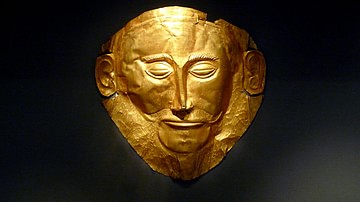
Definition
Agamemnon (Person)
Agamemnon was the legendary king of Mycenae and leader of the Greek army in the Trojan War of Homer's Illiad. Agamemnon is a great warrior but also a selfish ruler who famously upset his invincible champion Achilles, a feud that prolonged...
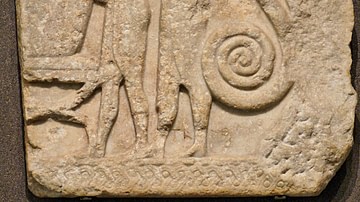
Definition
Agamemnon (Play)
The play Agamemnon was written by one of the greatest Greek tragedians Aeschylus (c. 525 – 455 BCE), “Father of Greek Tragedy.” Older than both Sophocles and Euripides, he was the most popular and influential of all tragedians of his era...

Definition
Iphigenia in Aulis
Iphigenia in Aulis (or at Aulis) was written by Euripides, the youngest and most popular of the trilogy of great Greek tragedians. The play was based on the well-known myth surrounding the sacrifice of Agamemnon and Clytemnestra's daughter...

Image
Agamemnon, Relief of Samothrace
The relief of Samothrace, c. 550 BCE. An inscription identifies a procession of Agamemnon, a herald, and Epeios (maker of the Trojan Horse). To the right is a griffin, now defaced. (Louvre Museum, Paris)
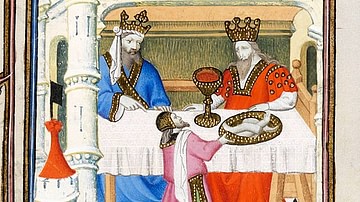
Definition
Atreus
Atreus was the mythical Greek king of Mycenae. He is perhaps best known for being the father of Agamemnon and Menelaus, two heroes of the Trojan War, as well as for the terrible curse placed upon his family. This was a hereditary curse, plaguing...

Image
Death Mask of Agamemnon
The so-called death mask of Agamemnon - the king of Mycenae in Homer's Iliad. Gold funeral mask from Grave Circle A, Mycenae (mid-16th century BCE). The mask in fact predates Agamemnon by 400 years but nevertheless remains solid evidence...
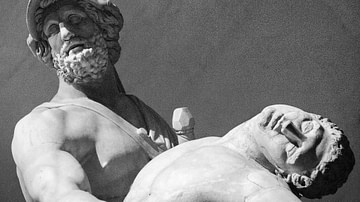
Definition
Menelaus
Menelaus (also Menelaos) is a figure from ancient Greek mythology and literature who was the king of Sparta and the husband of beautiful Helen, whose abduction by the Trojan prince Paris sparked off the legendary Trojan War. The story is...

Definition
Libation Bearers
The play Libation Bearers was written by one of the greatest of all Greek tragedians Aeschylus (c. 525-455 BCE). Winning first prize at the Dionysia competition in 458 BCE, Libation Bearers was the second play in the trilogy The Oresteia...
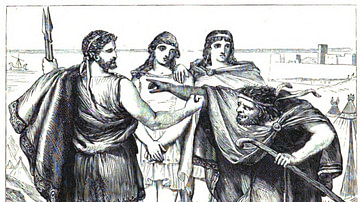
Definition
Thersites
Thersites is a character in the Iliad who made a stand against Agamemnon and the enterprise of the Trojan War. Homer chose to add Thersites’ speech after Achilles’ infamous dispute with Agamemnon, probably to emphasize the struggles that...
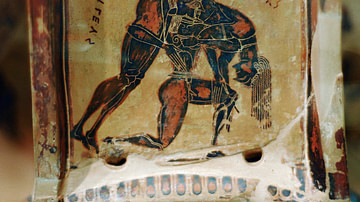
Definition
Ajax (Play)
Ajax is a play written by the 5th-century BCE Greek poet and dramatist Sophocles. Although Sophocles wrote at least 120 plays, only seven have survived. Of his surviving plays, the best-known is Oedipus Rex (Oedipus the King) - part of a...